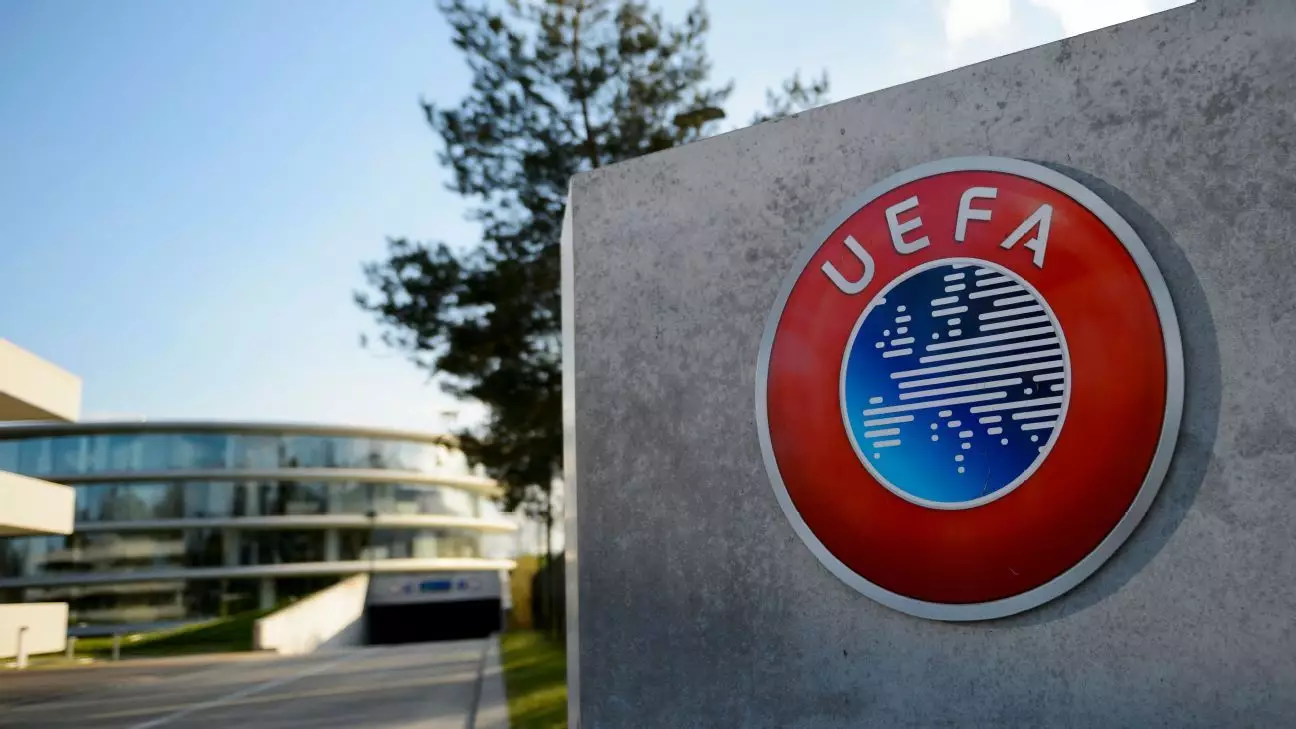In the evolving landscape of European football, regulatory bodies like UEFA serve as watchdogs to ensure clubs maintain financial discipline and safeguard the integrity of the sport. Recently, UEFA issued massive fines to prominent clubs like Chelsea and Barcelona, marking a turning point in its stern approach to policing financial misconduct. These sanctions expose a harsh reality: even the wealthiest clubs are not immune to scrutiny when they overshoot permissible financial boundaries. The magnitude of these penalties underscores UEFA’s commitment to enforcing financial fairness, yet it also highlights the fragility of clubs’ financial strategies amidst relentless competition.
The cases of Chelsea and Barcelona serve as exemplars of how fiscal mismanagement or strategic miscalculations can spiral into severe penalties. Nearly €31 million in fines were levied against Chelsea alone, with Barcelona incurring an additional €15 million. These numbers are staggering and represent a significant financial penalty, but they are also indicative of a broader systemic issue: the temptation to overspend to remain competitive, often at the risk of breaching financial regulations designed to promote sustainability. The fines serve not merely as punishment but as stark warnings to clubs that extravagant spending without long-term planning is a perilous path.
UEFA’s regulations aim to strike a delicate balance — encouraging clubs to invest and succeed while preventing reckless financial behavior that could destabilize the sport. The recent sanctions demonstrate that these rules are increasingly enforced with rigor and transparency. However, it also raises an existential question: in a sport driven by high-stakes transfers and massive revenues, can the regulatory framework truly curb clubs willing to push the boundaries? The answer remains complex, but one certainty is that clubs who ignore these boundaries risk severe financial penalties, reputational damage, and even sporting exclusion.
Impact of Financial Penalties on Club Strategy and Reputation
Financial penalties do not merely affect a club’s balance sheet; they reverberate across its strategic planning, reputation, and future operations. For Chelsea, a club that has historically been a symbol of American investment in European football, the fines highlight the perils of aggressive spending under new ownership. Since Todd Boehly and Clearlake Capital took over in 2022, Chelsea has maintained a high-profile transfer policy, yet their financial approach has recently come under severe scrutiny. The fine of €20 million for failing to approach break-even and additional penalties for exceeding squad cost limits reflect the challenge of balancing competitive ambition and fiscal discipline.
What is most telling is the club’s public stance: Chelsea insists that its finances are on an “upward trajectory,” and emphasizes transparency with UEFA. While this defensive posture aims to preserve reputation, it also reveals a nuanced understanding that compliance is not solely about penalties but also about maintaining credibility in a scrutinized industry. Clubs pushing the envelope can temporarily gain sporting advantages, but the long-term cost—financial, reputational, or sporting—is often higher. The fine, equating to a historic high for a European club, punctuates the fact that in modern football, financial integrity is intertwined with commercial success and public image.
In contrast, Barcelona’s criminal misrepresentation of income, leading to a €15 million fine, exposes the risks of strategic financial manipulation. The Catalan giants, like Chelsea, are financially ambitious, but their missteps suggest that bending the rules is a risky gamble. Safeguarding future European competition spots hinges on transparency, a principle UEFA fiercely enforces. These sanctions serve as a warning to clubs: the era of secretive or deceitful accounting is waning rapidly, and clubs must find sustainable paths to success.
The Broader Implications for Football’s Financial Ecosystem
The recent developments highlight a pivotal moment for European football, where the clashing of high ambitions with strict regulation underscores a deeper debate about sustainability. Clubs like Chelsea and Barcelona represent the epitome of commercial success, yet their penalties underscore that excess can no longer be sustained without repercussions. UEFA’s strategy to penalize breaches now seems firm and unrelenting, signaling a shift towards a more disciplined era.
Furthermore, these sanctions have ripple effects on the industry’s financial ecosystem. The hefty fines and future financial penalties are not just punitive; they serve as deterrents, a clear message that reckless spending is unsustainable. Additionally, the situation underscores the importance of strategic financial planning over reckless investment, especially as clubs chase lucrative European competitions that promise hefty revenues. The financial integrity of clubs is no longer a peripheral concern but a critical aspect of their operational viability.
As clubs navigate this new landscape, it becomes evident that good governance and transparent accounting are vital. The monetary penalties serve to reinforce that short-term success cannot come at the expense of long-term stability. UEFA’s persistent enforcement actions could catalyze a shift toward more prudent financial conduct, fostering a more sustainable future for European football. Yet, the challenge remains: balancing the allure of competitive success with the necessity of fiscal prudence is no small feat. Clubs must internalize that the true power lies not just in wealth but in disciplined governance and strategic foresight.


Leave a Reply